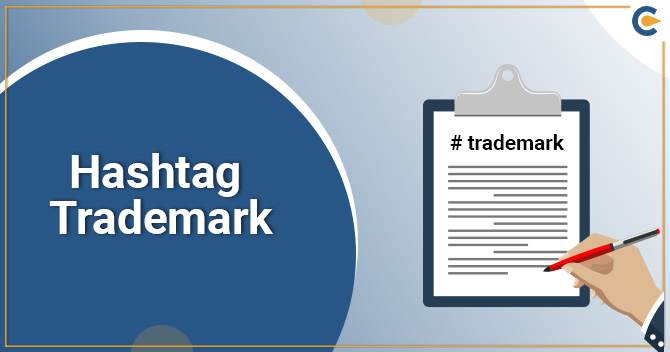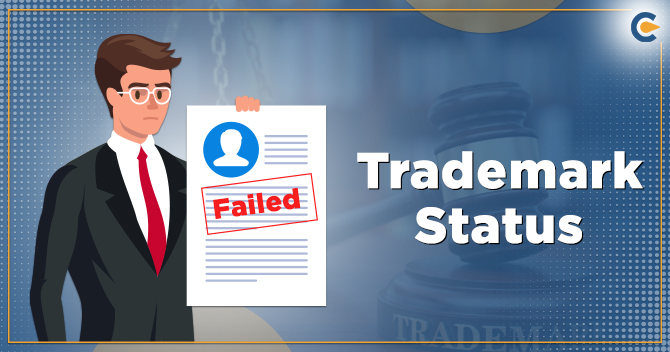In the prevailing scenario, hashtags are aggressively used on social media platforms. The hashtag is a crucial element for boosting customer engagement. Hashtags refer to a string of terms or phrases that are generally preceded by a hash (#) symbol. It acts as a metadata tag & aids the user to create, find, follow & contribute to a specific conversation on social media platforms & across other web-based programs. Hashtag Trademark doesn’t seem to be a feasible concept on the surface, but the fact is that the prevailing laws have got the provisions for the same. In this write-up, we will discuss the same matters.
Why have hashtags become so viral these days?
The hashtag comes in very handy in making the user-generated content viral among the target readers. The utilisation of hashtags has been on the rise ever since the introduction of high-speed data. This shift has compelled many businesses to leverage hashtags as a primary tool to boost their online marketing efforts.
Since hashtags are quite subtle in making strong customer engagement quickly, many companies are now using them as a substantial medium for promoting their products and services online. Today, the hashtag isn’t regarded as a buzzword anymore since its utilisation has reached a remarkable level.
For example, the term ‘NariShakti’ was selected as Oxford Hindi word in 2018 because of its ever-growing popularity in the social media space. The said hashtag gained momentum in light of the matters like triple talaq and prohibition of women entry in Sabarimala Temple in Kerala[1].
Other well-known and viral hashtag in India are #photography, #India, #follow, #instagood, #travel etc. Large corporations like Coca-cola have already availed trademark protection for hashtags like #cokecanpics and #smilewithacoke
Few other examples of large entities launching hashtags to support their online campaigns are #CaughtOnDropCam by Google, #sayitwithpepsi by Pepsi, etc.
Hashtags are prominently used on social media platforms today, proving their worth in trend building and aiding businesses to market their products.
Read our article:An Overview on Document Required for Trademark Registration
Hashtag trademark: Is it feasible to get one legally?
The Trademark law comprises two fundamental grounds based on which a hashtag can be filed for Trademark registration. For a successful has tag trademark registration, the following conditions should be met.
- The proposed term must be graphically representable
- It must differentiate the goods and services of one entity from those of others.
As we can see, the first ground is fully qualified since it has a string of words and numerals represented graphically. But the issue arises with the subsequent condition, which acts as a significant deterrent for a hashtag to qualify for trademark registration.
In light of Trademark law, it would be a challenging affair to meet the second condition. A Trademark act as a source identifier and the hashtags which can meet these conditions can only avail registration under the Act,
Here’s what the absolute grounds of refusals cited under Section 9 (1) of the Indian Trademark Act 1999 states;
A Trademark that seems deceptively similar or lacks the potency to act as a source identifier or has no quality of being unique on its own cannot be registered under Trademark Act,
Thus, the hashtag that fosters uniqueness and excels on non-contradictory elements is more likely to register under Trademark protection.
The trademark may be referred to as a coined word or a popular term that has been in trend on social media for a while. Furthermore, it is vital to understand that merely applying a hashtag to a generic or common word would not earn it a tag of a distinctive trademark.
The hashtag mark has to comply with certain conditions to become eligible for trademark protection. Under the Trademarks Act, 1999, a mark can confront upfront rejection if it lacks an element that makes it unique inside out. Therefore, any marks, words, or even a hashtag that fails to meet the criteria of distinctiveness set out by the Trademark Law cannot rejoice the Trademark protection in any way. Keep in mind that generic hashtags like #9 are more susceptible to rejection because they are not distinct in a literal sense.
Hashtag trademark can only be feasible in a scenario where it can fulfil the underlying criteria set out by the Trademark law.
Norms for granting Trademark protection to hashtags in various nations
United States Patent and Trademark Office (USPTO) also talks about the “source identifier” concept when it comes to the grant of trademark protection. According to the USPTO, the proposed mark, terms, design, and even hashtag should bear a certain degree of uniqueness and must act as a source identifier.
Has tag Trademarks that have been registered under Trademark in the USA include:
- #smilewithacoke and #cokecanpics (The Coca-Cola Company)
- #makeitcount (Nike)
- #McDstories (McDonald’s)
The USPTO has clearly stated that what marks cannot be protected under trademark cannot be registered as hashtags.
In the United Kingdom, a mark is protectable if it is unique & posses the ability to individualise the goods and services of a specific undertaking. If such a connection exists & the mark does not confuse the target users when it’s come to source identification, then trademark protection is available to such marks. The same paradigm is also applied to hashtags,
IP Australia made necessary changes in the Trade Marks Office Manual of Practice and Procedure in 2016 to incorporate the definition for a hashtag & facilitates provisions for businesses to follow. It also lists
IP Australia updated the Australian Trade Marks Office Manual of Practice and Procedure in 2016 to include a definition for a hashtag and offers some guidelines for businesses to follow. It also enlists examples of what could be perceived as vague cases, which one can perceive to realise if they could also be related to the brand eligibility.
Conclusion
The popularity of hashtags manifests no indication of letting up. Thus, it is vital for businesses to consider the utilisation of hashtags in their branding strategies. If the decision is finalised to leverage branded hashtags, it would be prudent to seek trademark registration to safeguard your goodwill effectively and mitigate consumer confusion. Hence, it can be concluded that has tag trademark is not something that doesn’t make sense in legal parlance.
Read our article:How Can You Apply For Online Trademark Registration in India?











